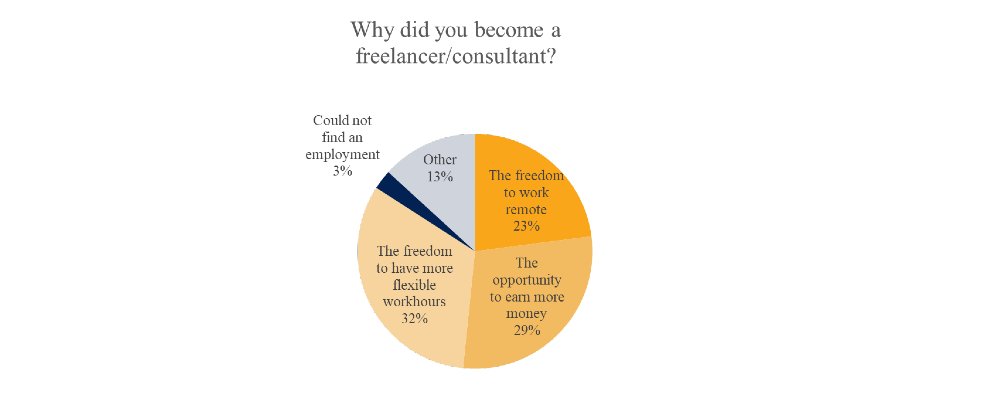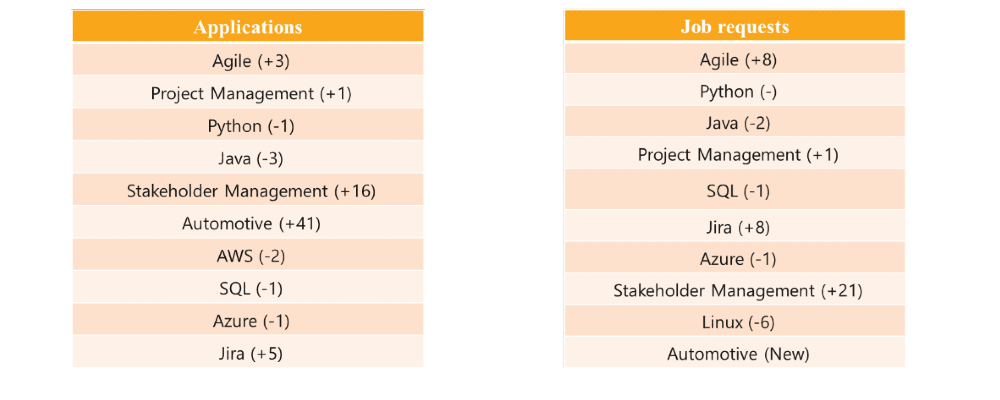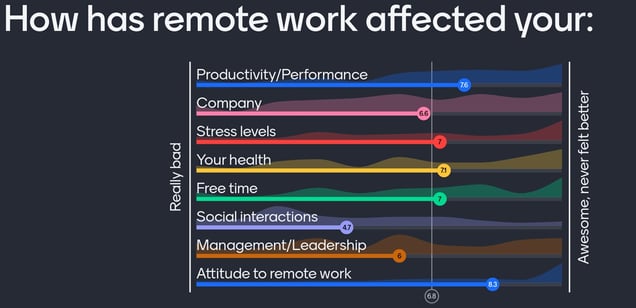Will we ever return full time to the office?
Andreas Jacobsson reflects on the Future of Work. Digging in to our market survey, data från Ework's plattform Verama and surveys from his network. Read his reflection and findings in his new post on Future of Work.
In the four years following the unprecedented "Work from Anywhere" disruption, the debate over the optimal work environment persists. It's intriguing to witness discussions on whether work is an action rather than a place, especially in a time when the concept of a workplace has evolved so significantly. Leadership in today's world, amidst a blend of digital and physical workspaces, undoubtedly presents its challenges.
What does our network has to say about it?
In November 2023, we conducted a market survey to delve into current work preferences and trends, Emerging trends and challenges in the consulting landscape. The findings underscore the dramatic transformation in work practices since the onset of the coronavirus pandemic. The pandemic catalyzed a global shift towards remote work and the adoption of digital communication tools. Post-pandemic, the continuation of remote or hybrid work models—where one splits their time between an office and another location—highlights a new standard in employment practices. Previously, such flexibility was predominantly a freelancer's privilege but has now become the most common work modality.
"77% prefers to work hybrid splitting time between office and remote"
Our survey revealed that 66% of participants are engaged in a hybrid work arrangement, with 16% working entirely remotely. Surprisingly, only 13% reported working exclusively from an office, with remote work preferences notably higher in Poland compared to other surveyed regions.
Despite some companies' efforts to revert to pre-pandemic office routines, a mere 5% of respondents expressed a desire to return to full-time office work. Contrastingly, 77% would prefer to choose their work arrangement if given the option, aligning closely with the 66% currently in a hybrid setup. This data indicates a slight preference shift towards more flexible work options, especially among those currently working full-time in office settings.

When questioned about their ideal number of office days, the majority favored two to three days (61% combined), while a fifth preferred a schedule that varies week by week.
Let’s have a look at our data
In general, our client are requesting consultant to work 100% on-site more than remote and hybrid combined when looking at the global perspective of Verama Marketplace. When looking at the top 10 most requested skills from our client, maybe it makes sense somehow, at least for some of the roles, like stakeholder management for example. But this also requires that the stakeholders themselves work on site. However, Stakeholder Management is an essential skill for Project Manager, which is also the most frequent requested hybrid and 100% remote role in the database.

Verama Marketplace data with the top 10 most frequently applied and requested skills throughout 2023. Data in brackets to show how this skills position has been changed compared to 2022.
When having a sneak peak at the skills, I’ll conclude that our clients are really focusing on digital transformation projects. Anyways, I’m not here to give you management lessons on how to manage remote workers, I just wanted to show you some data and let the data speak for itself:
Job request that are 100% remote receives on average ~25% more application than the 100% on-site job. That’s the effect when you open up for a larger talent pool. Based on our Market Report, we learned the most preferable way of working is 2-3 days in the office, or 50-99% remoteness, which attracts almost 9% more applicants than the 100% at the office. Remoteness 1-49% (1-2 days a week at the office), is the big winner here! 65% more applicants on average! This clearly states that for some of the workers, it seems to make more sense to do physical meetings at the office occasionally and then do the focused work remotely. Right or wrong, I guess you have the productivity statistics as well.
Looking Ahead
The future of work undoubtedly leans towards flexibility. Our data advocates for work arrangements that support both office presence and remote work. The emphasis is shifting towards creating more inclusive, flexible, and supportive work environments to redefine productivity and job satisfaction for the 21st century.
The dialogue surrounding the optimal work environment continues to evolve, indicating that the future of work transcends mere location. It's about crafting efficient, flexible, and well-being-oriented work practices. More work is definitively needed, since the majority of the job requests are still 100% at the office, at least in the original description. This limits your ability to only fish in your local pond rather than the glocal one, where there are plenty of more options.
My networks reflection
Early on, when the pandemic hit us when the majority of us was forced into the “new” way of working, I asked my network how remote work has affected them according to below. Quite cool findings.

That was four years ago. What about now?
Answer the Menti and find out
Reach out if you want the full report from 2020!
Andreas Jacobsson



